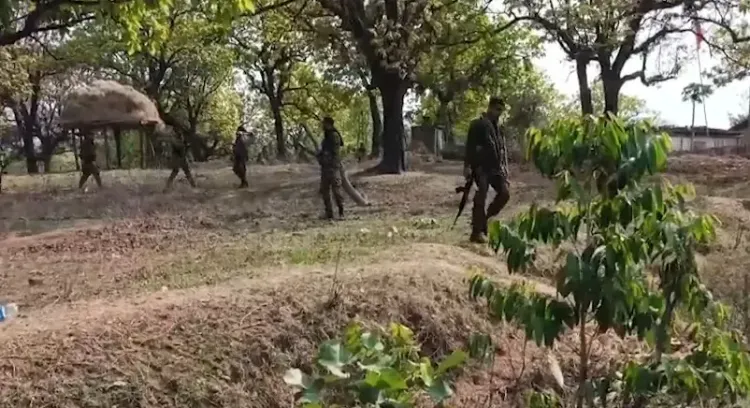Will Chhattisgarh's Bastar See a Historic Surrender of Over 200 Maoists Today?

Synopsis
Key Takeaways
- Over 200 Maoists are surrendering, marking a historic moment.
- The surrender includes high-ranking leaders which impacts the Maoist command.
- Government initiatives address socio-economic issues fueling extremism.
- Local administration and community involvement are crucial for building trust.
- Transformation of Bastar relies on inclusive governance.
Raipur, Oct 17 (NationPress) In a historic moment for Chhattisgarh's enduring struggle against insurgency, more than 200 Maoists from the Maad region are scheduled to officially surrender to Chief Minister Vishnu Deo Sai and Deputy Chief Minister Vijay Sharma in Jagdalpur this Friday. Among the defectors is Rupesh, who serves as the North-West Sub-Zonal In-charge, a prominent figure whose departure signifies a major setback for the Maoist leadership.
Rupesh, along with his associates, reached the Bijapur police headquarters on Thursday evening, where he initially made his surrender.
The formal surrender ceremony is set to occur shortly at the Reserve Police Lines in Jagdalpur, located in Bastar district, symbolizing a crucial victory for the state's anti-Naxal efforts.
Chief Minister Sai described this event as a pivotal moment, emphasizing that the strength of Bastar lies in the community's self-reliance, education, and dignity.
"Our governance model, founded on these principles, is now instilling hope and change in the heart of Dandakaranya," he stated. This mass surrender is the result of a comprehensive strategy that intertwines security operations with developmental initiatives.
Union Home Minister Amit Shah stated on Thursday that those who carry arms will not receive any leniency, and all supporters will face stringent legal repercussions.
HM Shah has previously asserted that Naxalism will be eradicated from India by March 2026.
Under CM Sai's direction, the state has ramped up efforts not only to eliminate armed threats but also to tackle the socio-economic conditions that foster extremism.
Programs focused on education, healthcare, infrastructure, and job creation are beginning to transform the region's narrative.
The achievements are attributed to the collaborative efforts of police and paramilitary forces, the proactive involvement of local administration, and the increased awareness among tribal communities.
Public representatives have also been instrumental in building trust between the government and remote populations.
Friday's ceremony transcends a mere procedural formality - it signifies a declaration of intent. As Bastar embarks on a new chapter, the reintegration of these former insurgents into civil society exemplifies the potential of inclusive governance and lasting peace-building.









